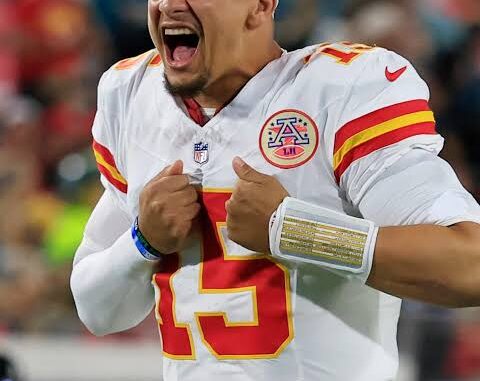
A recent study from the University of Texas at El Paso has sparked heated debate across the football world. The researchers meticulously examined more than 13,000 penalty calls spanning eight NFL seasons—from 2015 through 2023—and their findings point to a trend that has caught the attention of both fans and analysts: postseason officiating has seemingly tilted in favor of the Kansas City Chiefs, particularly since Patrick Mahomes became the team’s starting quarterback.
According to the report, opponents of the Chiefs in playoff games were penalized in ways that frequently extended Kansas City drives. Defensive infractions such as holding, pass interference, and roughing the passer appeared to occur at higher rates compared to similar games involving other teams. What’s more, these penalties were more likely to lead to first downs—creating game-changing momentum for the Chiefs during crucial postseason moments.
One of the most striking aspects of the UTEP study was its focus on “subjective” calls, the types of penalties that depend heavily on an official’s judgment. Among them were roughing-the-passer calls, unnecessary roughness, and defensive pass interference—all penalties that can swing the outcome of close playoff matchups. The researchers noted that such calls occurred at “elevated rates” in Kansas City’s favor, suggesting that unconscious bias or external pressures may have subtly influenced officiating decisions.
The press release accompanying the study highlighted the potential role of financial and organizational pressure within the NFL’s high-stakes environment. The Chiefs, one of the league’s most marketable teams in the Mahomes era, have been central to some of the NFL’s most-watched playoff games and Super Bowls. With the league generating record-breaking television ratings during those contests, the researchers proposed that maintaining marquee teams deep into the postseason may create indirect incentives for favorable officiating outcomes—though they carefully stopped short of alleging intentional manipulation.
The findings have ignited strong reactions from around the league. Some fans and commentators argue that the study confirms what rival teams have long suspected—that the Chiefs have benefited from leniency and advantageous calls during their dynastic run. Others, however, contend that elite teams like Kansas City naturally force more defensive penalties because of their speed, precision, and offensive creativity under Mahomes and head coach Andy Reid.
Still, the data cannot be easily dismissed. The UTEP team emphasized that while officiating bias is rarely overt, subtle trends over many seasons can reveal how institutional factors, including financial pressure and human psychology, shape decision-making on the field. Their conclusion: referees, like all humans, are susceptible to influence—especially when working under the glare of national television and multimillion-dollar playoff stakes.
As the conversation unfolds, this study raises deeper questions about the integrity and transparency of officiating in professional sports. Should the NFL review its referee training programs or consider expanding video oversight for subjective calls? And will this research prompt other institutions to examine officiating bias across leagues?
Whatever the answers, one thing is clear—the UTEP findings have added a new layer to the ongoing debate over fairness, perception, and power in the NFL. For now, the Kansas City Chiefs remain at the center of that storm.
Be the first to comment